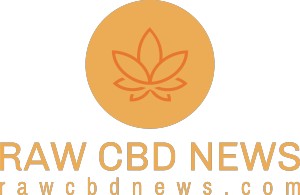Introduction
Zinc, an essential trace mineral, plays a pivotal role in various physiological processes within the human body. From immune function and wound healing to DNA synthesis and growth, the importance of zinc spans across multiple systems. In this comprehensive guide, we delve into the diverse range of benefits that zinc offers for overall health and well-being.
Understanding Zinc: A Vital Trace Mineral
Zinc is classified as a trace mineral, meaning it is required by the body in small amounts but is crucial for maintaining optimal health. It is involved in numerous enzymatic reactions and serves as a cofactor for various proteins, influencing processes that range from cell division to immune response. While the body does not store zinc, regular intake through diet or supplementation is essential for maintaining adequate levels.
Immune System Support
One of zinc’s most well-known roles is its contribution to immune function. It plays a vital role in the development and function of immune cells, including white blood cells and neutrophils. Zinc is involved in the activation of T lymphocytes, which are critical for mounting an effective immune response against infections. Deficiencies in zinc have been associated with impaired immune function, making it a key nutrient for supporting the body’s defense mechanisms.
Wound Healing and Tissue Repair
Zinc is instrumental in the process of wound healing and tissue repair. It is involved in the synthesis of DNA, cell division, and the formation of proteins essential for tissue regeneration. Individuals with insufficient zinc levels may experience delayed wound healing, emphasizing the importance of maintaining an adequate supply of this mineral for overall tissue health.
DNA Synthesis and Cell Division
As a cofactor for enzymes involved in DNA synthesis, zinc is essential for the replication and division of cells. This is particularly crucial during periods of growth, development, and tissue repair. Adequate zinc levels are integral for the maintenance of genetic material, ensuring the accurate transmission of genetic information during cell division.
Cognitive Function and Neurotransmission
Zinc plays a role in cognitive function and neurotransmission within the central nervous system. It is involved in the regulation of synaptic activity and the function of neurotransmitters, including glutamate and GABA. Research suggests that zinc may have a modulatory effect on certain receptors in the brain, influencing cognitive processes such as learning and memory.
Antioxidant Defense
Zinc contributes to the body’s antioxidant defense mechanisms by acting as a cofactor for superoxide dismutase (SOD), an enzyme that neutralizes harmful free radicals. Free radicals, unstable molecules produced during normal metabolic processes or in response to environmental factors, can cause cellular damage if not adequately neutralized. Zinc’s role in supporting antioxidant enzymes helps protect cells from oxidative stress.
Hormone Regulation and Reproductive Health
Zinc plays a crucial role in hormone regulation, particularly in the synthesis and function of various hormones. In males, zinc is essential for the production of testosterone and sperm. In females, zinc contributes to the regulation of estrogen and progesterone. Adequate zinc levels are vital for reproductive health in both men and women, influencing fertility and overall reproductive function.
Balancing Blood Sugar Levels
Emerging research suggests a potential link between zinc and the regulation of blood sugar levels. Zinc is involved in the synthesis, storage, and secretion of insulin, the hormone responsible for regulating blood glucose. Maintaining optimal zinc levels may contribute to improved insulin sensitivity and glucose metabolism, making it relevant for individuals concerned about metabolic health.
Bone Health and Growth
Zinc is a participant in the processes that govern bone metabolism and growth. It plays a role in bone mineralization and the activity of osteoblasts, the cells responsible for bone formation. Adequate zinc levels are particularly important during periods of growth, such as childhood and adolescence, to support the development of strong and healthy bones.
Skin Health and Acne Management
Zinc is recognized for its potential role in promoting skin health. It contributes to wound healing, and some studies suggest that zinc supplementation may be beneficial for individuals with acne. The anti-inflammatory and antioxidant properties of zinc may contribute to its positive effects on skin conditions.
Mood and Mental Health
Zinc’s influence extends to mood regulation and mental health. It is involved in the metabolism of neurotransmitters, including serotonin, which plays a key role in mood regulation. Some studies suggest that zinc supplementation may have a positive impact on mood disorders, though further research is needed to establish definitive conclusions.
Sources of Zinc in the Diet
Obtaining sufficient zinc through diet is crucial for maintaining optimal health. Good dietary sources of zinc include:
- Meat: Beef, pork, and lamb are rich sources of zinc.
- Seafood: Shellfish, such as oysters, crab, and shrimp, are particularly high in zinc.
- Legumes: Beans, lentils, and chickpeas are plant-based sources of zinc.
- Nuts and Seeds: Pumpkin seeds, cashews, and almonds contain zinc.
- Dairy: Milk, cheese, and yogurt contribute to zinc intake.
- Whole Grains: Whole grains like wheat, rice, and oats contain zinc.
Zinc Deficiency: Causes and Symptoms
Zinc deficiency can occur due to inadequate dietary intake, poor absorption, or increased demand, such as during periods of growth, pregnancy, or illness. Symptoms of zinc deficiency may include
- Impaired Immune Function: Increased susceptibility to infections.
- Delayed Wound Healing: Slower recovery from injuries and wounds.
- Growth Retardation: Particularly in children and adolescents.
- Skin Conditions: Such as dermatitis or acne.
- Loss of Appetite: A common early sign of zinc deficiency.
- Impaired Taste and Smell: Changes in sensory perception.
Zinc Supplementation: Considerations and Precautions
While obtaining zinc through a balanced diet is preferable, supplementation may be recommended in certain cases, such as zinc deficiency or specific health conditions. However, it’s crucial to consider the following
- Dosage: The Recommended Dietary Allowance (RDA) for zinc varies by age and sex. Excessive zinc intake can lead to adverse effects, so it’s essential to follow recommended dosages.
- Interactions: Zinc supplementation may interact with certain medications, including antibiotics and diuretics. Consult with a healthcare professional before starting zinc supplements, especially if you are taking medications.
- Forms of Zinc: Various forms of zinc supplements are available, including zinc sulfate, zinc gluconate, and zinc picolinate. The bioavailability of these forms can vary, and choosing an appropriate form may depend on individual needs and preferences.
Conclusion: Maximizing Health through Zinc’s Multifaceted Benefits
Zinc stands as a foundational element for overall health, influencing diverse physiological processes that contribute to vitality and well-being. From immune support and wound healing to cognitive function and reproductive health, the significance of zinc cannot be overstated. Whether obtained through a well-balanced diet or targeted supplementation, maintaining optimal zinc levels is essential for promoting resilience and fostering a thriving, healthy life.
As we unravel the intricate roles of zinc within the body, it becomes evident that this trace mineral is not merely a supplement but a fundamental player in the symphony of human health. Approach zinc with an appreciation for its multifaceted contributions, and consider consulting with a healthcare professional to tailor your approach based on individual needs and health goals. In embracing the benefits of zinc, you empower your body to function optimally, paving the way for a life of vitality, strength, and well-being.
- Ultimate CBD Oil Review Top Picks & Insights By swdistro - September 20, 2024
- Kratom Chocolate Gold Shots: A Delicious, Smooth, and Balanced Kratom Experience - September 20, 2024
- Unleashing Flavor Fury: Exploring Riot Squad’s 10ml Nic Salts Collection - February 28, 2024




